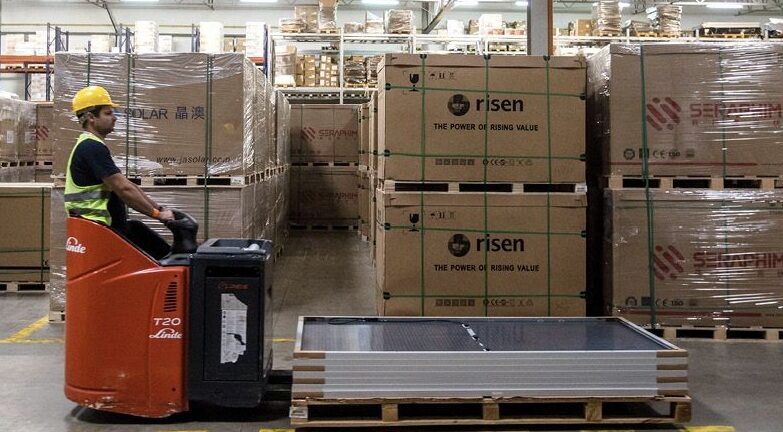The central bank of Bangladesh has given the nation's commercial lenders permission to invest funds they have been gathering since last year, to shore up stock markets, into recently introduced green bonds.
Sharia-compliant ‘sukuk' bonds were first offered direct to investors last month, via initial public offerings (IPOs) but, following a tepid response, the central bank on Monday said Bangladesh's high street banks could invest their special stock liquidity funds into the instruments.
Solar and sustainability
When prices on the country's two stock exchanges began to fall, in February last year, the government asked lenders to put aside special funds of up to BDT2 billion ($23 million) each, over and above the amount they are usually permitted to invest in stock. Some 29 banks have thus far taken the opportunity to stockpile BDT35 billion ($402 million) in special funds, with around BDT17 billion already invested on exchanges.
With lenders originally given until January 2025 to invest their special funds, they have now seen that deadline pushed back to December 2028 and been told the cash can be used to purchase sukuk bonds which can finance solar and wind power projects and other renewables.
A senior official at the Bangladesh Securities and Exchange Commission described the decision as a “very encouraging move.”
Dhaka-based conglomerate the Bangladesh Export Import Co Ltd (Beximco) announced in March, it intends to raise almost $400 million worth of Islamic bonds to finance the 200 MW Teesta Solar Limited PV project, in Rangpur district, and the 30 MW Korotoa Solar Limited facility in Panchagarh, both in the north of the country.
Beximco said it would raise $87 million through an IPO, a similar amount from its current backers and the rest from a private placement of shares, with the company's Chinese partners, TBEA Xinjiang Sunoasis Co Ltd and Jiangsu Zhongtian Technology Co Ltd, to also invest in the two solar parks.
Withe the government aiming for 40% of Bangladesh's electricity to come from renewables by mid century, the country currently boasts around 766 MW of clean energy generation capacity.
This content is protected by copyright and may not be reused. If you want to cooperate with us and would like to reuse some of our content, please contact: editors@pv-magazine.com.



By submitting this form you agree to pv magazine using your data for the purposes of publishing your comment.
Your personal data will only be disclosed or otherwise transmitted to third parties for the purposes of spam filtering or if this is necessary for technical maintenance of the website. Any other transfer to third parties will not take place unless this is justified on the basis of applicable data protection regulations or if pv magazine is legally obliged to do so.
You may revoke this consent at any time with effect for the future, in which case your personal data will be deleted immediately. Otherwise, your data will be deleted if pv magazine has processed your request or the purpose of data storage is fulfilled.
Further information on data privacy can be found in our Data Protection Policy.